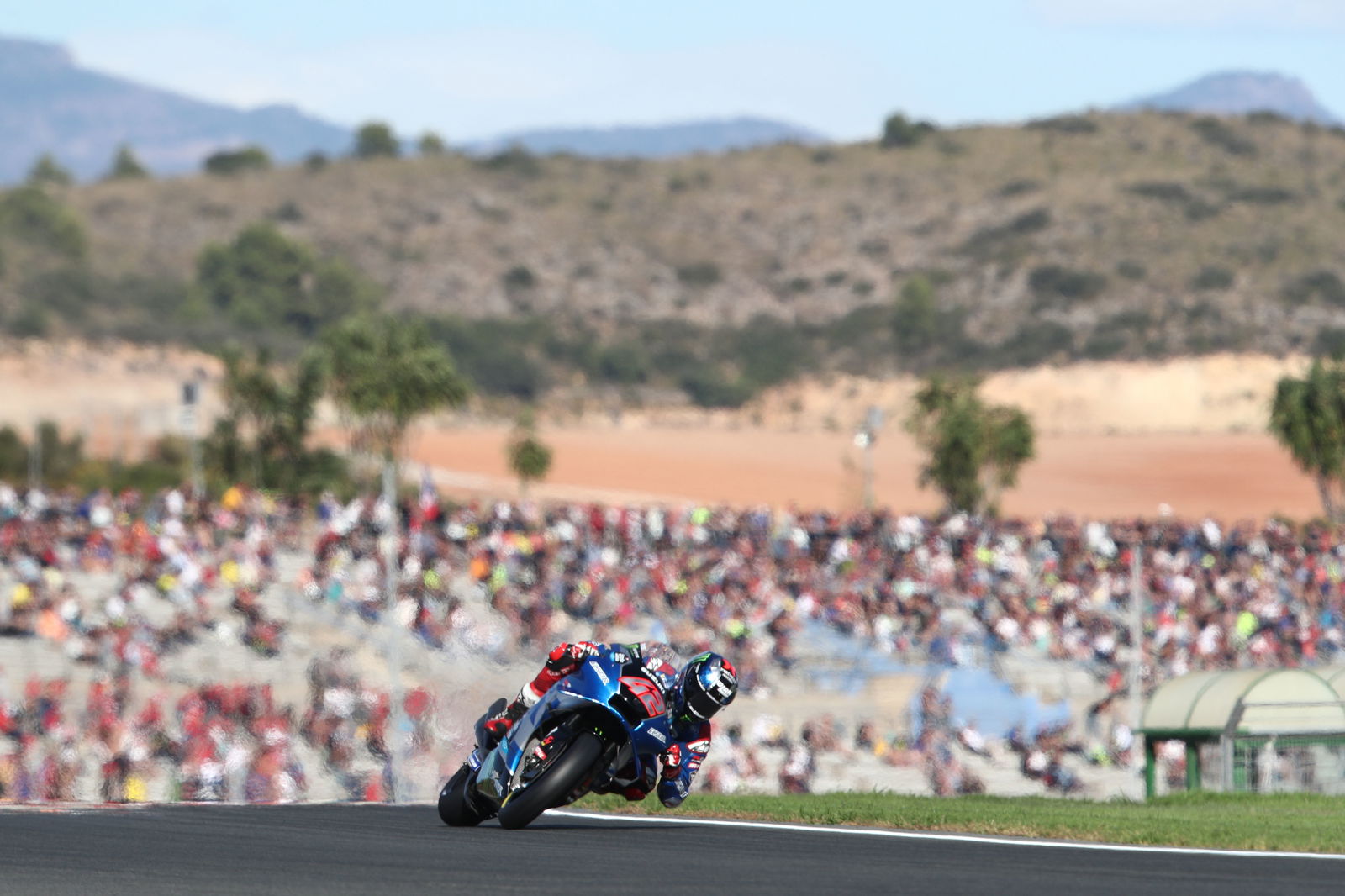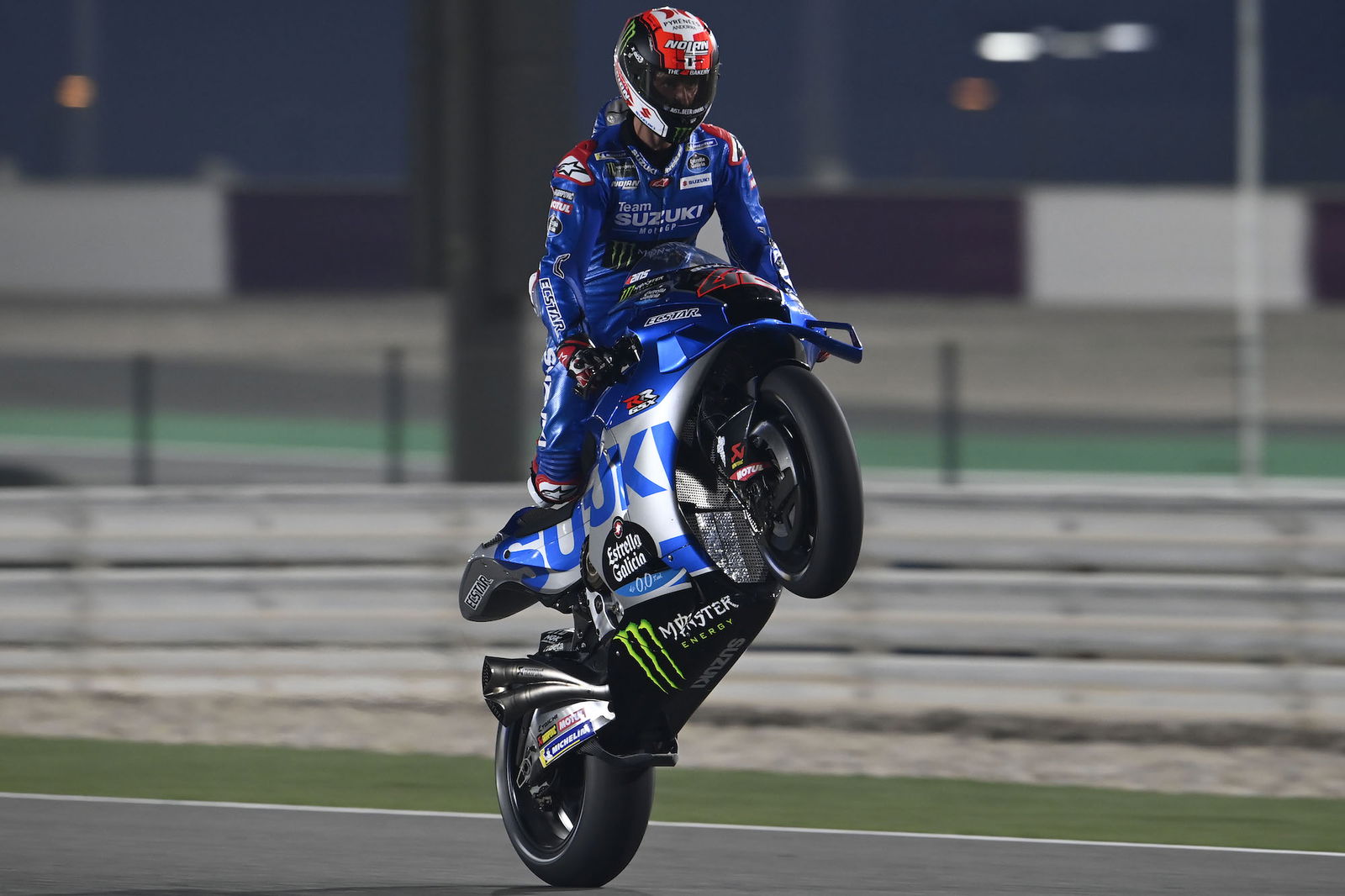Toni Bou joins Marc Marquez in testing renewable Repsol fuel for Honda
The Repsol Honda trials team completed a test of renewable fuels from Repsol, just a few weeks after a similar test was conducted by Marc Marquez.

Repsol has completed its first test of renewable fuels with the factory Honda trials team, which is sponsored by the Spanish oil company, including 32-time World Trial Champion Toni Bou.
The test involved Bou and Repsol Honda teammate Gabriel Marcelli trying new renewable fuels from Repsol and feeding back to engineers the general feeling of riding with the new fuel compared to the standard version.
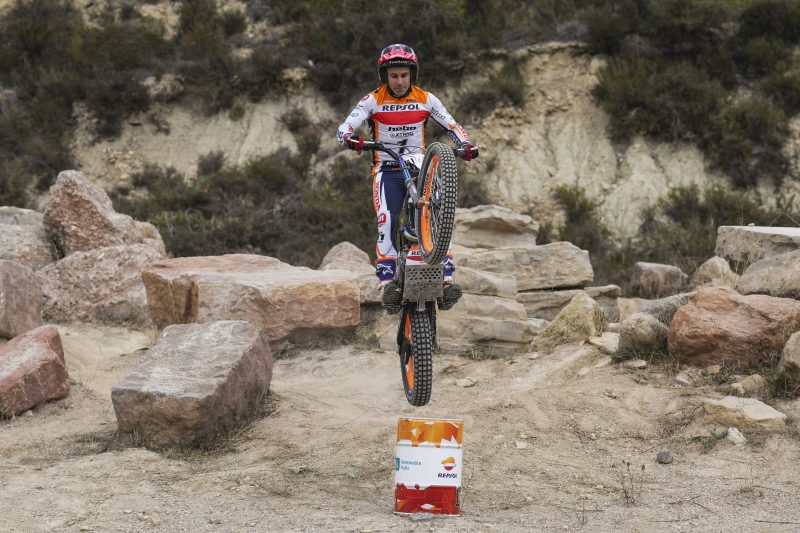
Honda reports that the feedback from their riders to Repsol was generally positive and that "that performance was identical to that with conventional fuel," Honda Racing says.
The fuel is being developed by researchers from the Repsol innovation centre. The new fuel comes "from organic waste and emit up to 90% less net CO2 emissions than conventional fuels," Honda Racing says.
This test of renewable fuels by the Repsol Honda trial team comes only a few weeks after Repsol Honda MotoGP rider and eight-times World Champion, Marc Marquez, made a similar test with a Honda RC213V-S at the Jarama circuit near Madrid after the conclusion of the MotoGP season. Marquez' test also reported generally positive findings, and came in anticipation of MotoGP's adoption of increasingly non-fossil fuels which will begin with 40% non-fossil fuels in 2024.
This article was originally published on 11 November 2022, following the initial test of renewable fuels involving Marc Marquez at the Jarama circuit in Spain. The original article can be read below.
With sustainability continuing to increase its presence in the mind of motorcycle manufacturers, the desire to continue using internal combustion engines does not fade. With this in mind, steps have been taken this week in the racing world to try to develop a sustainable future that does not solely rely on electrification.
MotoGP will move to 40% non-fossil fuels in 2024, and fully non-fossil fuels in 2027. In anticipation, Marc Marquez has been testing biofuels for Repsol in Jarama.
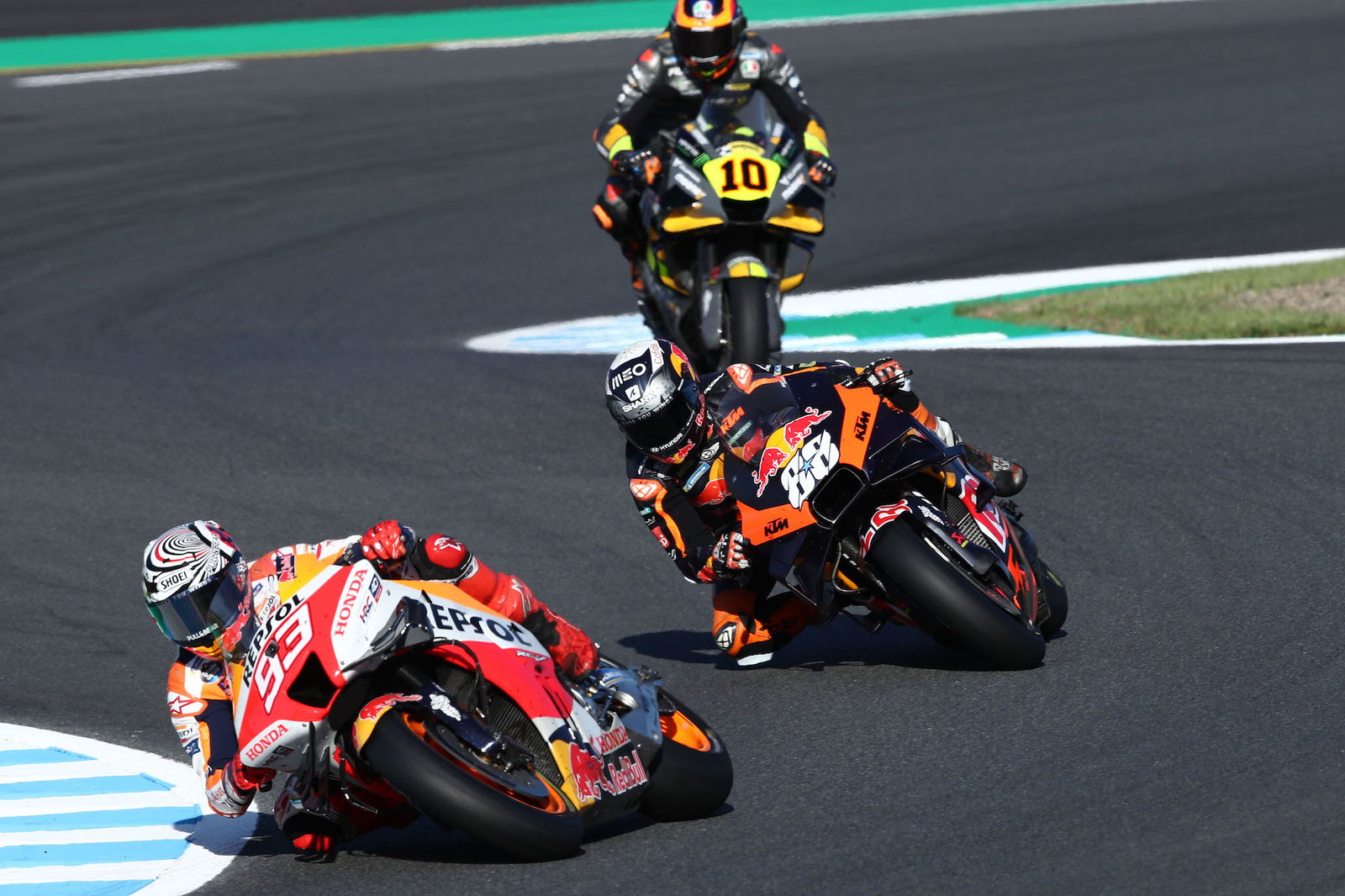
The RC213V-S is an almost pointless motorcycle for those who own them outside of providing enjoyment. Its conventionally-firing V4 is out-dated by modern MotoGP standards where ‘big bang’ engines are the go-to method of finding manageable horsepower in the age of unified electronics, but it sounds good, and for Marc Marquez it provides an opportunity to get as close as possible to riding a MotoGP bike outside of race weekends.
In this case, it has also provided a useful platform for Honda and Repsol to test biofuels. In Formula One, E10 fuels were introduced for 2022, and the difference it made was notable. Honda (or Red Bull Powertrains if you want to ignore reality) were very strong, Ferrari quite strong, Mercedes not very strong, and Renault very unreliable. The partly non-fossil fuel is a part of that, if not totally responsible, and in MotoGP the E40 fuel for 2024 will surely create similar challenges for the engineers responsible for the engines of each factory.
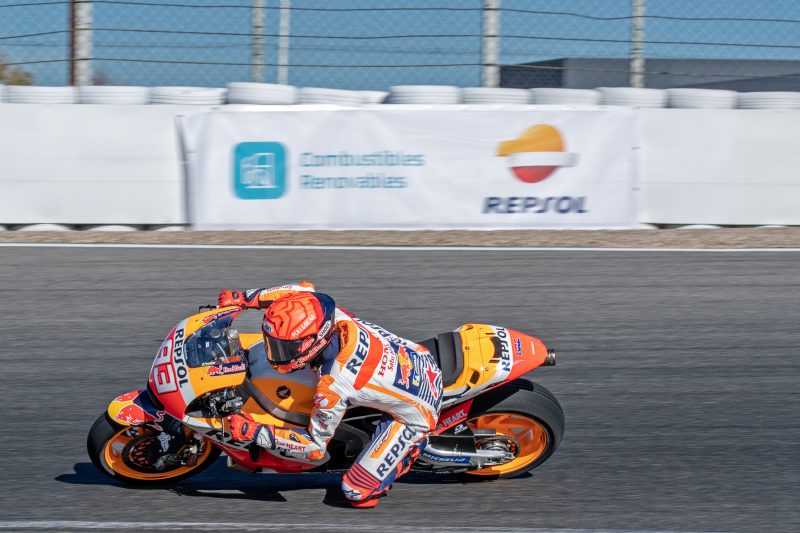
Trying to get ahead of the game, then, is important, and that was the intention of the test in Jarama, as well as to create some PR around the fuel.
For Repsol, the increasing price of fuel and the heating Earth means they are becoming increasingly unpopular just like all of the other oil companies, so using the factory MotoGP team they pay for and their 8-times World Champion rider to generate some more positive headlines is not a bad idea.
Marquez completed only 12 laps, just a couple of days after a post-season MotoGP test in Valencia which left him lamenting the position HRC find themselves in with the current RC213V.
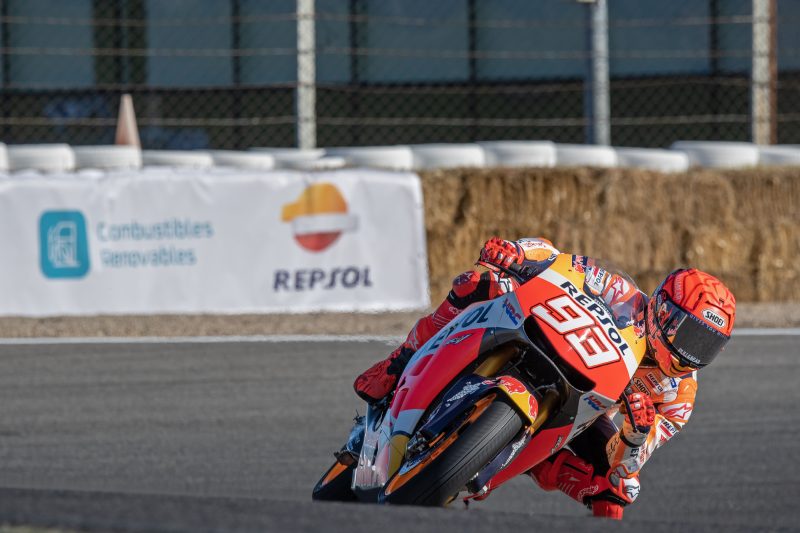
Although the lap count was small, the test was essentially conducted to find out if there is a correlation between Repsol’s findings in the laboratory and what is discovered when the fuel is used on-track.
MotoGP will not be Repsol’s first venture into competing with non-fossil fuels. The Repsol Rally Team already uses renewable fuels (50% non-fossil at the 2022 Dakar), and Repsol has supplied the French Formula 4 Championship with completely non-fossil fuels in 2022.
Whether Repsol’s preparation will be sufficient to put HRC in a good position for 2024 will not be certain until we arrive at the first race of that season, but perhaps the more important thing is the way this will help develop non-fossil fuels for road bikes.
In a similar vein, the Japanese Superbike Championship (JSB) has announced that it will be using fully-fossil fuels from 2023.
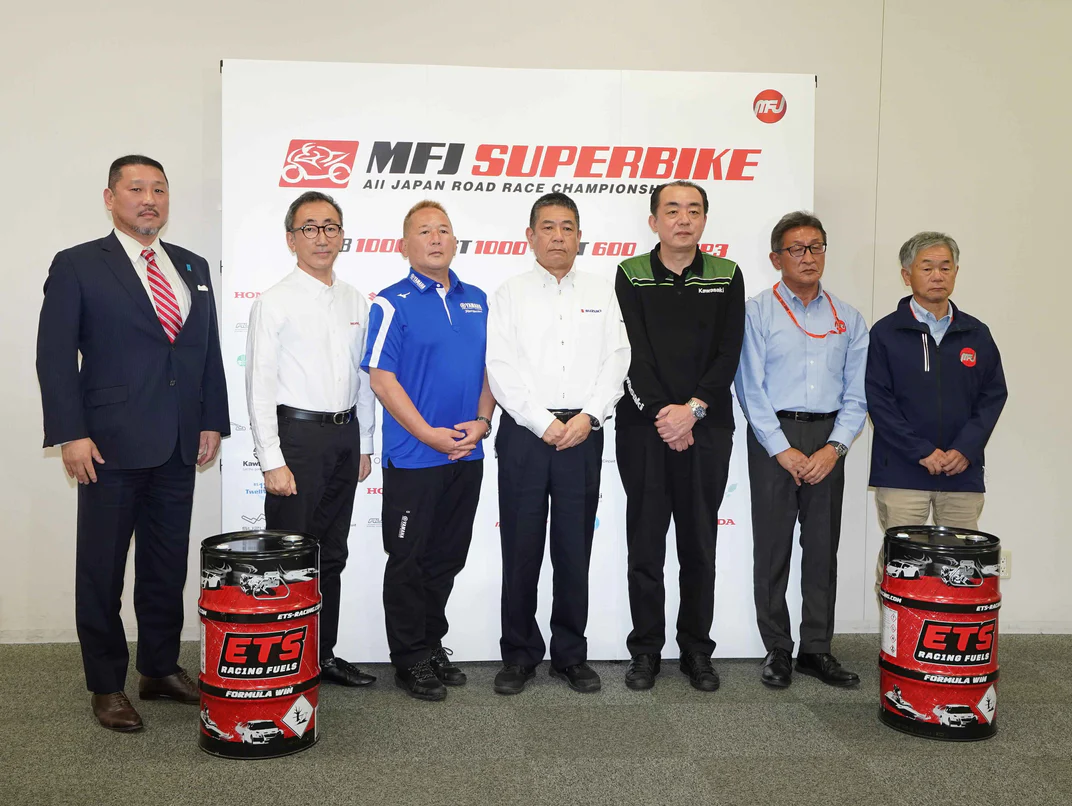
ETS Racing Fuels will be the supplier, and will make JSB the first motorcycle racing series in the world to use fully-sustainable fuel. The fuel is called Renewablaze NIHON R100 and “contains proprietary renewable components that allow to significantly reduce CO2 emissions while meeting the high-performance criteria demanded by today’s modern engines,” ETS Racing Fuels says.
JSB is also the location (bar the Suzuka 8 Hour) of the last remaining ‘full factory’ superbikes, compared to WorldSBK, for example, where the regulations are quite restrictive about what has to remain stock. As such, for ETS to be providing all four major Japanese factories with sustainable fuel in JSB from 2023 shows a confirmation of the commitment to non-fossil internal combustion by the Japanese manufacturers.
This is somewhat in-line with the view of many Japanese firms that hydrogen is a viable alternative to battery electrics. By now, we are well into the collaboration of Yamaha and Kawasaki in the hydrogen project spearheaded by Toyota, who are so certain that hydrogen is the future of propulsion that they are trying to convince the FIA to make it part of the future plan for the World Rally Championship, where Toyota has recently won its fourth title in as many seasons.
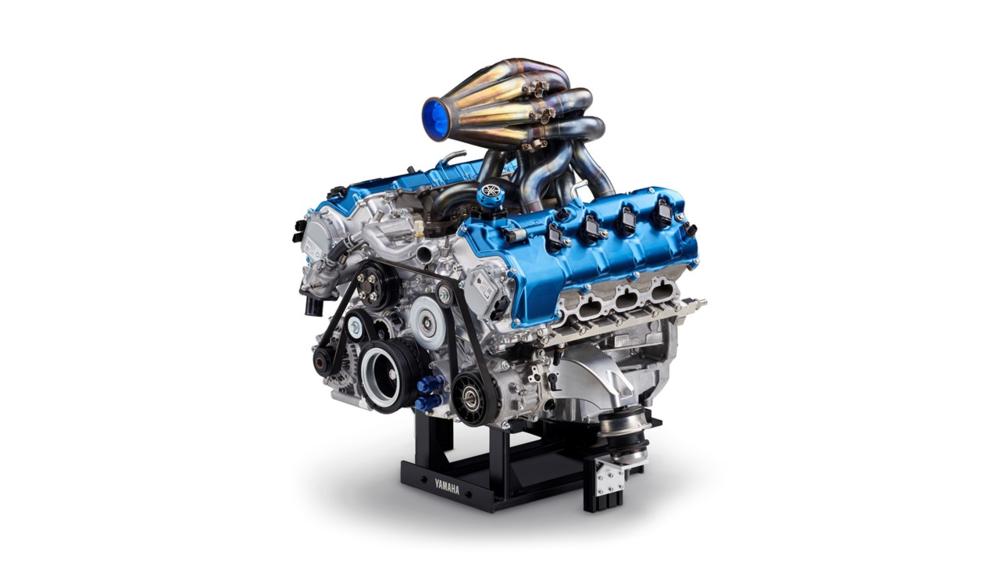
Here in the West the view tends more towards battery electrics, two of which have recently been revealed by Kawasaki, two more by Yamaha, and one from Honda. Suzuki also stated claimed that research and development of its own electric technology was a factor in its decision to leave MotoGP. All four major Japanese manufacturers are also a part of the Swappable Batteries Motorcycle Consortium.
The use of sustainable fuels in JSB and Honda’s commitment to biofuels with Repsol both show that Japanese manufacturers are committed to trying to develop a future for the internal combustion engine. At the same time, the electric plans of three of the four are already being established and are producing their first vehicles.
Does this show hypocrisy? Or a lack of commitment to either solution that will ultimately result in the failure of both? That might prove to be true, but in actuality things remain very open.
Also in Europe, where as previously mentioned the battery electric solution is generally preferred by manufacturers and sustainability-focused enthusiasts, Ducati is focusing not on one sustainable mobility solution, but several, including biofuels which it will develop in MotoGP in the coming years with Shell, and electrics, which it will develop in MotoE, in racing, which has seemingly reclaimed some of the road relevance it had lost in recent years.
